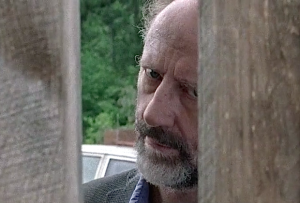
Just this last summer, my 11 year old son asked me if there were rules to war. The question didn’t just come out of thin air. We were watching a World War II movie where the “Geneva Convention” was mentioned. He had no idea what this was, but the idea of rules to war seemed amusing to my son.
“Dad, does anyone follow rules for war?” he asked me.
I kind of laughed and pointed out that the rules mostly dealt with what you could do with prisoners of war and what types of weapons you could use, but that the Allies (in WW2) really tried to obey the rules. Then he asked me if the atomic bomb was against the rules. I told him that I didn’t know, but I pointed out that the Japanese severely disobeyed the rules about prisoners of war. And then he asked the big question, “Why then do they have rules of war if no one follows them?”
The question is a good one. It is also a question that I didn’t know the answer to then or even now. It’s not that I don’t believe that these rules are good. They definitely have served their purpose in the 20th and 21st centuries, preventing genocide and attempting to thwart different forms of terrorism. But when it really comes down to it, war is a very messy thing. And in every instance, it brings up all kinds of ethical and moral questions.
This is also exactly what we are dealing with right now on TWD season eight. It is “all out war” right now between our heroes and the Saviors and inevitably, questions about the rules of war are coming up. Is it okay to weaponize walkers? When should capital punishment be used? What do you do with tied-up prisoners when walkers attack? What do you do with prisoners when they run? And most importantly, do you even take prisoners at all when Negan’s soldiers don’t?
The group is divided on this issue. Jesus thinks that we should take prisoners. Daryl just executes them without a second thought. And Morgan has vacillated on this issue since season one.
So far, our group has sided on mercy more than not. We have discussed that at length in this column, and readers here at the TGATTWD have all kinds of opinions on this issue. Some clearly side with mercy and others side with justice (to vastly simplify the issue). But in most cases, it seems like people’s opinions have varied more surrounding who is doling out the mercy and who has been doling out the justice. Just look at the discussion forums all over the web.
But tonight, we had one particular character who seemed to take both sides on the issue all in one scene. I am talking about Gregory, and he had one of the funniest scenes that we have had on TWD for a long time.
The scene begins when Gregory drives Gabriel’s car up to the gate at Hilltop. He stands outside the massive gate all by himself knocking.
Gregory: Hey! [Knock on gate] Hello! Open the gates! I — I need help! I’ve been through hell! I know you’re in there! I know you can hear me! [Bangs on gate] [Sighs] What, is the gate broken? I-I’ve told them to oil that — The gate’s not broken.
Maggie: (opens the gate) What are you doing with Gabriel’s car? Where is he?
Gregory: I don’t know who that is. The — The car was just there.
Maggie: So what are you doing here?
Gregory: I live here. This is my home. I built this place. Uh, you weren’t here for that, but some of us didn’t just show up.
Maggie: Shut your d**n mouth! You’re really gonna stand there and pretend you didn’t try to sell us out, sell this place out to the Saviors?
Gregory: I was working for the side of sanity. I was working for peace.
Maggie: You threatened to kick people out.
Gregory: I tried to save lives. Now those people are cannon fodder.
Maggie: Those people are fighting for a better life.
Gregory: [Sighs] Look, the “throwing out the families” line was all Negan. He made me say those horrible things. I went to them in — in — in — you know, in the interest of — of furthering [stammers] good-faith diplomacy. I tried to save lives. Some people, without opinions colored by a preoccupation with vengeance, might call that heroic.
Maggie: You were looking out for yourself. You went there to betray us. To warn Negan that we were gonna fight. That’s what you told Kal when you dragged him there. It’s why Kal left you there.
Gregory: Kal? Pfft. Kal is delusional.
Kal: (peeking around the wall) What the h*ll? Kal! Hey.C’mon, man.
Gregory: Y-You — You know you can be dramatic. That — That thing with the sorghum pancakes, huh?
Kal: You mean when you ate a little girl’s pancakes?
Gregory: I did not eat those pancakes! [Sighs] Listen, for what it’s worth, I did exactly zero harm to your cause. Negan already knew everything.
Maggie: Goodbye, Gregory.
Gregory: Wait! No! Please! I — All right, I went there because I was scared, all right? I knew you were going to fight, and — and I didn’t want to be complicit. Because I didn’t think you could win. But I see now what — what you saw all along. That — That — That the Saviors can’t be reasoned with. That fighting them is the only way. I was wrong. I-I-I made a mistake, and I’m sorry. Please, Maggie. We’re all just human beings with faults and flaws and — and fears! But i-is this who you are? H-Have you no mercy? Have you no humanity? Have you no charity? [Voice breaking] Please! Open the gate. Open your heart. Don’t leave another human being out here to die!
Maggie: Let him in.
Enid: [Gate creaking] [Softly] With everything he did Why?
Maggie: [Softly] He’s not worth killin’. Not yet, anyway.
Gregory: You won’t regret this. I’ve changed. I-I’m a believer now. You’ll see.
So Maggie shows Gregory mercy even though no one in their right mind would say that he deserves it. Just in this scene alone we find out even some more new reasons that Gregory shouldn’t be trusted. In one of the funniest lines in the whole series, we learn that he stole pancakes from a little girl. We also see him try to throw Kal under the bus, but is thwarted because Kal happens to be standing right there behind the wall. Clearly this isn’t the first time that this has happened to him. But most importantly, Gregory pleads for Maggie to show some humanity and mercy to him. Like John Turturro’s character in Miller’s Crossing, he even says the telltale line “open your heart!” But just like in the Coen brother’s classic film, this act of mercy is definitely going to be something that they regret later. But what we don’t expect is for it to happen in the same scene.
Right after Maggie lets Gregory in, Kal notices Jesus, Tara, Morgan and the Savior prisoners march up right outside the gate.
Kal: (looking over the wall) Uhhh Maggie? (cut to: Jesus waits outside the gate with the Savior prisoners)
Gregory: We are not letting them in! No way! With what they did? With what they do? They are monsters!
Jesus: Gregory — No!
Gregory: This is not a sanctuary for killers. We’ll be putting the safety of everyone in jeopardy!
Maggie: (to Gregory) Get out of here.
Gregory: I know what they are. I have stared into the face of th–
Maggie: Gregory! Go. (Gregory walks away)
Jesus: He actually came back after all that?
Maggie: And I actually let him in.
Both Maggie and Jesus know that they are going to regret letting Gregory in. But his reaction to the mercy given to the Savior prisoners is straight out of one of Jesus’ (from the Bible) parables. Gregory wants mercy for himself, but not for anyone else – he is after all, a true hypocrite.
Take a look at one of Jesus’ parables in Matthew 18.
21 Then Peter came to him and asked, “Lord, how often should I forgive someone who sins against me? Seven times?”
22 “No, not seven times,” Jesus replied, “but seventy times seven!
23 “Therefore, the Kingdom of Heaven can be compared to a king who decided to bring his accounts up to date with servants who had borrowed money from him. 24 In the process, one of his debtors was brought in who owed him millions of dollars. 25 He couldn’t pay, so his master ordered that he be sold—along with his wife, his children, and everything he owned—to pay the debt.
26 “But the man fell down before his master and begged him, ‘Please, be patient with me, and I will pay it all.’ 27 Then his master was filled with pity for him, and he released him and forgave his debt.
28 “But when the man left the king, he went to a fellow servant who owed him a few thousand dollars. He grabbed him by the throat and demanded instant payment.
29 “His fellow servant fell down before him and begged for a little more time. ‘Be patient with me, and I will pay it,’ he pleaded. 30 But his creditor wouldn’t wait. He had the man arrested and put in prison until the debt could be paid in full.
31 “When some of the other servants saw this, they were very upset. They went to the king and told him everything that had happened. 32 Then the king called in the man he had forgiven and said, ‘You evil servant! I forgave you that tremendous debt because you pleaded with me. 33 Shouldn’t you have mercy on your fellow servant, just as I had mercy on you?’ 34 Then the angry king sent the man to prison to be tortured until he had paid his entire debt.
35 “That’s what my heavenly Father will do to you if you refuse to forgive your brothers and sisters from your heart.”
(Matthew 18:21-35, NLT)
Just like the characters on our show, Jesus’ disciples are discussing the nature of mercy and forgiveness here. But Jesus’ answer is not exactly the answer that his disciples expected. He answers their question with a story about a man who is forgiven a lot, who in turn refuses to forgive a little. In the story, the lender (a king) naturally gets very upset and rescinds mercy on the servant who refuses to show a little mercy when he is shown so much. The story mirrors almost exactly what happens tonight with Gregory and his hypocritical view on mercy – it is okay to show ME mercy, but no one else.
But notice how much Jesus says that they are supposed to show mercy. He says “seventy time seven times” a reference to a number in the Old Testament book of Daniel that basically means “more than you can count .” Jesus is saying to never stop showing mercy… ever. Why? Because we have been shown great mercy from our Heavenly Father, and if we expect to keep finding mercy, we need to show it.
The image here is fantastic. It is as if mercy is something that should just never stop flowing from followers of Jesus. In a sense, Jesus is saying that Christians should know better when it comes to mercy. We have been shown so much mercy from God that there should never even be a question as to whether we show others mercy. He is saying that there is no limit as to how much mercy we should show others… because there is no limit to how much mercy we have been shown by God.
SEASON 8, EPISODE 3 DISCUSSION QUESTIONS:
1) Was Daryl right in shooting Morales so quickly? Why or why not?
2) According to the passage in Matthew 18, we are to forgive people “seventy times seven” times. Do you think that Jesus meant that after 490 (70×7) times, we are off the hook for forgiveness? Why or why not?
3) Rick gives his word to Todd that he won’t shoot him. Then Daryl shoots him in cold blood. Do you think that Rick was intending to show Todd mercy? Why or why not?
4) Do you think that it was wrong for Daryl to shoot Todd? Why or why not?
5) In Jesus’ parable, one debtor refuses to forgive someone who owes him a lot less money than he has been forgiven from the king. Why do you think that Jesus chooses two different amounts from the two different debtors? Are the amounts significant? Why or why not?
6) What does Jesus say in the parable will happen to those who don’t forgive? Does that seem fair to you? Why or why not?
7) Has Gregory been shown a lot of mercy by Maggie in tonight’s episode? Does this mercy seem to affect Gregory in any way?
8) If you take all of the mercy that God has shown us and compare it with all of the mercy we have shown others, which do you think is bigger? What does that mean in your own evaluation as to how you dole out mercy?
9) Does Jesus story indicate whether each character deserves mercy? Why do you think the story does this?
10) Is there someone in your life who doesn’t deserve your mercy, that Jesus wants you to give it to anyway? If so, what are you going to do about it?
Thom McKee Jr. is a husband, father, pastor… and film geek (and brother of Jonathan McKee). Thom lives in Northern California with his wife and two kids.
Jonathan McKee
Jonathan McKee is the author of over twenty books including the brand new The Guy's Guide to FOUR BATTLES Every Young Man Must Face; The Teen’s Guide to Social Media & Mobile Devices; If I Had a Parenting Do Over; and the Amazon Best Seller - The Guy's Guide to God, Girls and the Phone in Your Pocket. He speaks to parents and leaders worldwide, all while providing free resources for youth workers on TheSource4YM.com. Jonathan, his wife Lori, and their three kids live in California.



